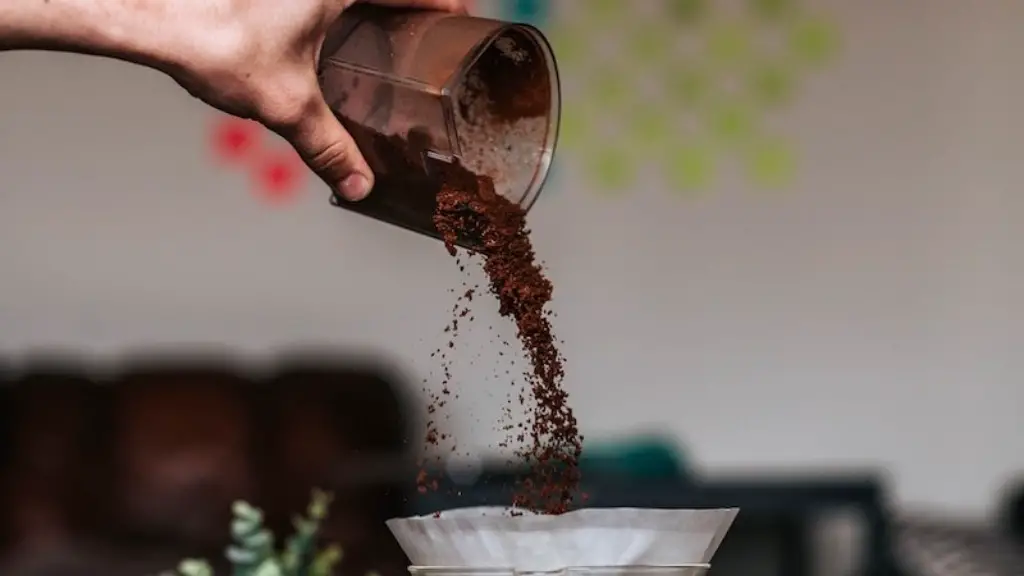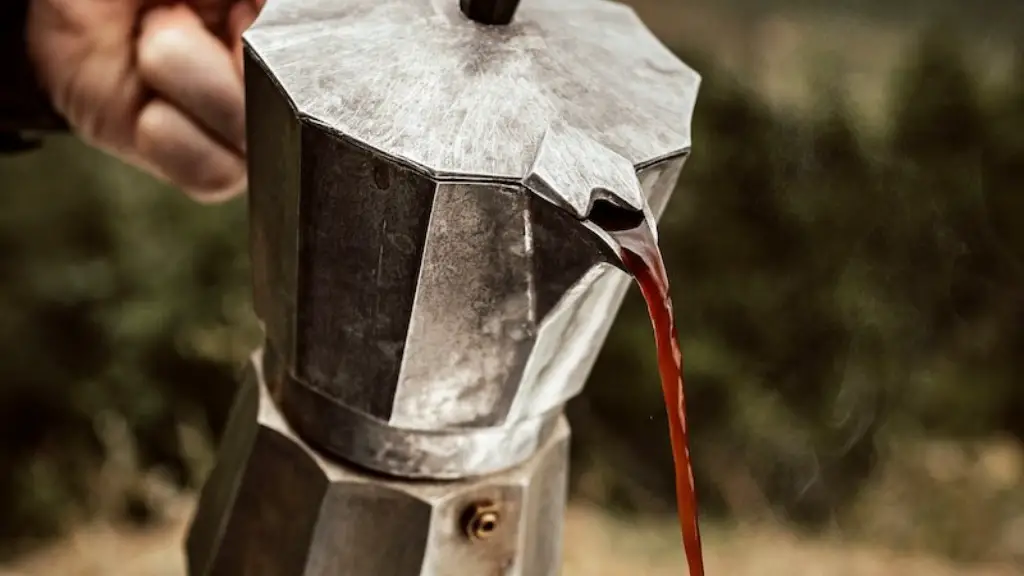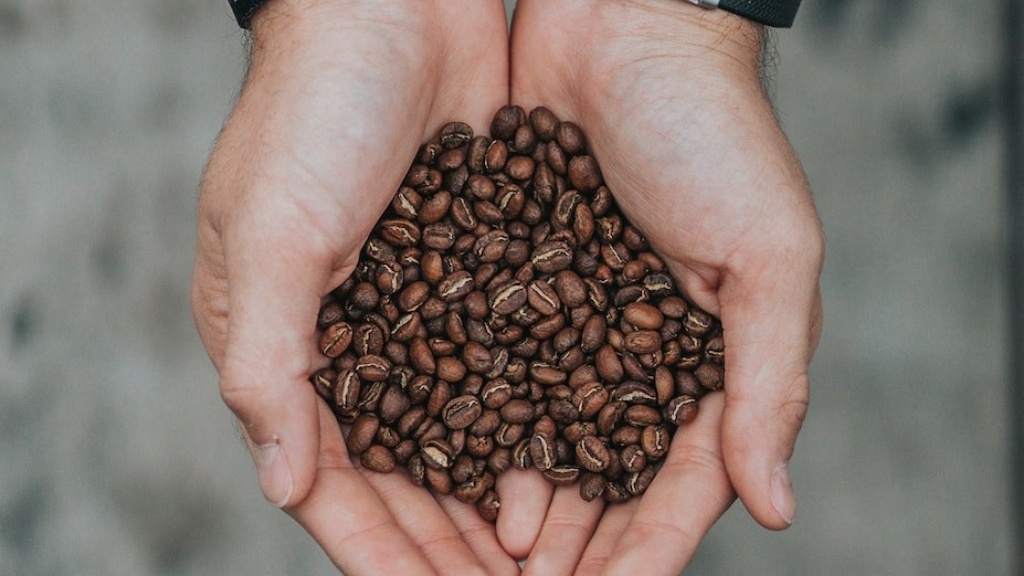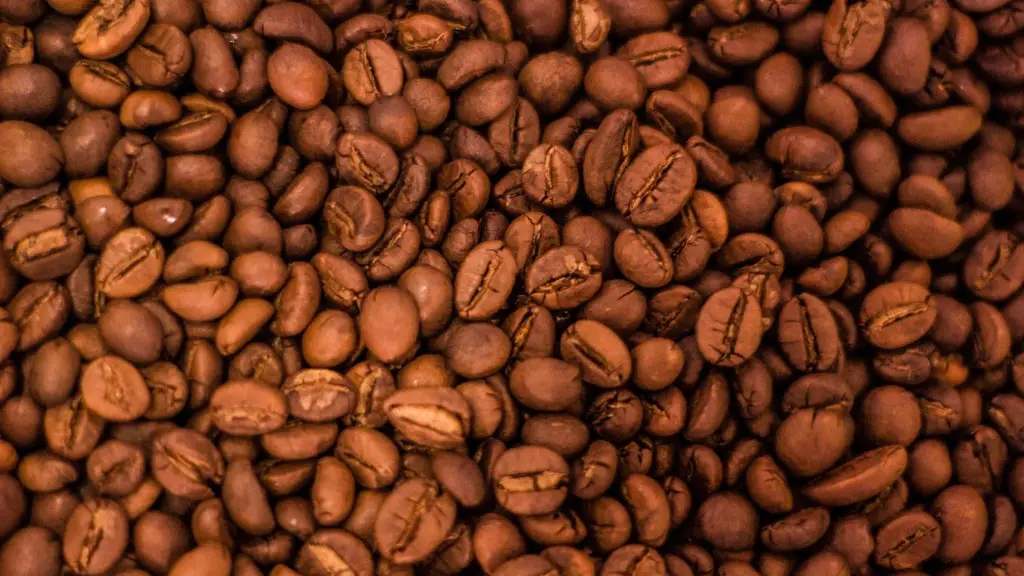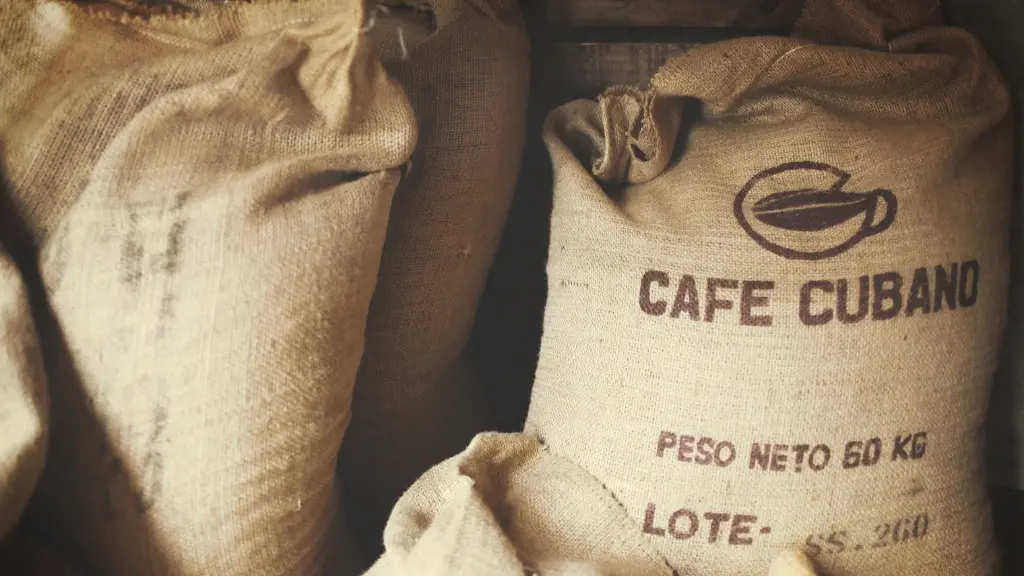Coffee is one of the most popular drinks worldwide, but it is crucial to consider whether toddlers should choose to drink it or not. It can be a controversial topic, as coffee can be beneficial in many ways while also potentially being harmful to young children. This article will provide background information on coffee, explore the good and bad effects, include perspectives from experts, consider the ways toddlers may be exposed to coffee, and suggest possible solutions.
Coffee is a brewed drink that is made from ground and roasted coffee beans. The first use of coffee dates back approximately to the 9th century in Ethiopia, but people from all cultures and around the globe now drink coffee, which is widely available and come in different forms, from eggnog latte to iced cold brew.
Coffee contains caffeine, a stimulant that affects the central nervous system and can improve cognitive ability. It can increase feelings of alertness and energy, for instance, and create a clearer perspective. It is also thought to benefit physical health and reduce the risk of some diseases, such as diabetes and heart disease.
Coffee consumption in toddlers is not recommended, as it can be harmful to their development. It can lead to sleep disturbances, hormone imbalances, and even dehydration. Caffeine levels in toddlers are not regulated, and it can affect their developing bodies more than that of an adult, leading to potential long-term health problems.
Experts suggest that toddlers should not drink coffee, as it is not a healthy choice. For instance, Dr. Christopher Bell, a pediatrics professor, stated that “Coffee contains caffeine, which can be dangerous for kids as it can increase their risk of dehydration and limit their iron intake.” Additionally, a dietitian from Boston Children’s Hospital recommends that “Parents need to take into account that their toddlers’ nutritional needs are specific and should not be compromised by their children’s desire for caffeine.”
Toddlers are usually exposed to coffee when they are conditioned to believe it is a ‘treat’ instead of a beverage. This often happens when parents bring their toddlers to coffee shops, as the smell and atmosphere of the space can be tempting. Toddlers can also be more likely to drink coffee when other adults are consuming it, regardless of the amount.
To avoid introducing caffeine to toddlers, parents should opt for healthier alternatives, such as herbal tea and water. Additionally, they should create a home environment that is free of coffee and limit the exposure to coffee shops that serve the drink. Additionally, getting toddlers involved in snacking and baking activities can be beneficial, as they can learn to identify different types of food and make healthier choices.
Unsupervised Consumption
Another potential concern with coffee consumption by toddlers is that it may become an unsupervised habit. Toddlers may start drinking coffee before their parents realize that it is happening, not just in the home but elsewhere too. For instance, if a child visits a family member, there might be coffee around that is left unsupervised and therefore available for the child to consume. This can be dangerous if the child is not aware of the possible side effects of coffee, such as caffeine addiction and dehydration.
In order to avoid unsupervised coffee consumption, it is important for parents to be aware of the signs of coffee drinking and to monitor their child’s activity for signs that coffee might be consumed without their knowledge. Additionally, if children are exposed to coffee, parents should provide education about the pros and cons of drinking coffee and the potential consequences that may result from it.
Altering Taste Buds
Another potential problem of coffee consumption in toddlers is the possibility of altering their taste buds. As toddlers are still developing their taste preference, drinking coffee may change their taste buds and make them more likely to crave coffee. This can lead to habitual coffee consumption and addiction over time.
In order to prevent coffee from altering toddlers’ taste buds, parents should make a conscious decision to keep coffee away from their children. Additionally, they should focus on introducing healthier beverages and snacks instead, such as fresh juices and fruits. By introducing these alternatives at a young age, toddlers will be more likely to form healthy habits and have a lower risk of coffee addiction.
Monitoring And Supervision
In order to ensure toddlers are not exposed to coffee, parents must develop and implement rules to ensure their children stay away from coffee. They should make sure they are monitoring the environment and the foods their children consume, as well as keeping an eye on potential interactions with other adults or children who may offer coffee.
Furthermore, parents should also provide supervision by having discussions with their children about coffee and reinforcing the importance of health and safety. By engaging in meaningful communication, children can better understand why coffee is not suitable for them and how to make healthier alternatives.
Caffeine Regulations
Parents should also be aware of the regulations for caffeine consumption for children. While the exact figures differ between countries, in general, it is recommended that children under four consume no caffeine and those between four and six consume no more than 45 mg per day.
It is important to be aware of these restrictions, as it can help parents to stay vigilant and protect their toddlers from accidentally drinking too much coffee. Additionally, parents should also take into consideration that caffeine levels may vary depending on the type and brand of coffee, so it is best to read labels and research the caffeine content in drinks and foods before introducing them to toddlers.
Reporting Violations
If parents notice any violations of their toddlers’ caffeine consumption, it is important to report the violation in order to protect other children. For instance, if they witness any coffee shop or restaurant selling coffee to children, they should contact the local health department in order to take action and prevent other children from being exposed to coffee.
Additionally, parents should also make an effort to spread awareness about the dangers of giving toddlers coffee. By making sure that other parents, relatives, and caregivers are aware of the potential issues associated with coffee consumption, the risk of exposure and addiction may be lowered.
References To Cultural Perspectives
It is important to consider the cultural perspectives on coffee consumption, as it can differ from place to place. For instance, in Europe and other parts of the world, coffee is commonly consumed, whereas in certain Asian and African countries, it is not as popular. Therefore, cultural norms and values should be taken into account when discussing whether coffee should be consumed by toddlers or not.
For instance, in countries where coffee is commonly consumed, parents may be more relaxed about their toddlers drinking coffee, while in countries where coffee is not popular, they may be more strict. It is up to the parents to determine what is appropriate for their children, but it is always important to keep an open mind and to respect different opinions and perspectives.
Educating And Reinforcing
The most important factor of discussing whether toddlers should consume coffee or not is educating and reinforcing the message. Even if parents decide against giving their toddlers coffee, educating them about the pros and cons of caffeine consumption can be beneficial in the long run.
By talking about the dangers of caffeine consumption and reinforcing the importance of healthy diet, children can form their own opinion about coffee consumption without making it a forbidden topic. Additionally, parents should also provide support by having conversations about healthier alternatives, such as herbal tea, which can be a great introduction into the world of tea.
Coffee As A Treat
In many cultures, coffee is thought of as a special ‘treat’ that children should not have access to. However, it is important to consider that coffee can provide potential benefits and that it should not always be referred to as a ‘treat’.
For instance, in some Scandinavian countries, coffee can be a part of a traditional meal, and children are allowed to consume it in small amounts and under adult supervision. Therefore, by considering different cultures’ views on coffee, parents can better understand the potential implications of giving toddlers coffee and create better, more balanced, decisions.
Environmental Factors
The environment can also affect toddlers’ coffee consumption habits, as exposure to healthy or unhealthy activities and foods can shape their mentalities. For instance, if toddlers are consistently surrounded by coffee drinkers, they may be more likely to consume coffee in the future.
In order to create a healthy environment, it is important for parents to make sure they are providing a safe and monitored space for their children. By establishing rules and providing a balanced and healthy lifestyle, toddler’s mentality and habits can be shaped in a positive manner, ensuring that coffee consumption won’t become an issue.
Final Thoughts
The decision whether toddlers should consume coffee or not ultimately depends on the parents. Even though coffee can provide potential health and cognitive benefits, it is important to consider the potential risks, such as dehydration, sleep disturbances, and caffeine addiction.
Therefore, it is crucial for parents to be aware of the potential positive and negative consequences of allowing toddlers to drink coffee and to make decisions accordingly. Most importantly, they should focus on providing their children with a healthy and balanced lifestyle, and make sure they are educated and supervised in order to ensure their safety.
